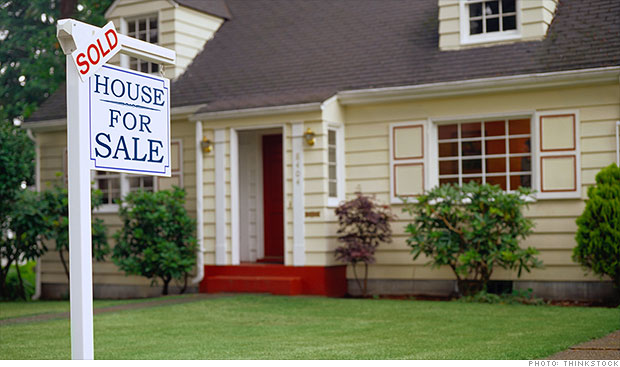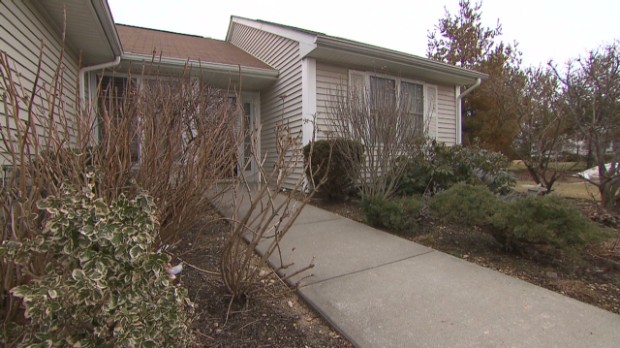 Catch buyers’ attention, and get multiple offers, by pricing your home in line with comparable sales.
Catch buyers’ attention, and get multiple offers, by pricing your home in line with comparable sales.
Six years after prices collapsed, housing has begun to climb out of its hole. So what are the best moves to make now? In a three-part series, we offer smart strategies for buyers , sellers, and owners in today’s market.
Selling your home? In most parts of the country, you have finally regained the upper hand.
Lower your sights to make more money.
Rising prices breed rising hopes: In a recent poll, brokers complained that 75% of homeowners think their agent’s recommended listing price is too low. Pricing your property above recent sales to cash in on the momentum may slow down deals, and sitting on the market too long can stigmatize a house.
Catch buyers’ attention — and get multiple offers — by pricing your home in line with comparable sales, says Rick Turley, president of Coldwell Banker San Francisco: “Then let the market take it higher.”
Trading up? Move fast. Downsizing? Go slow.
It’s tempting to postpone selling to hold out for a better price. But if you want to move to a larger place, act sooner rather than later. True, higher-end homes aren’t rising as quickly, but the gap is small. So while you’ll be able to sell your home for more if you wait, the appreciation on the trade-up home will be greater.
Related: 5 best markets to sell a home
When you’re downsizing, the math works the other way, so it pays to wait.
The case for these strategies should strengthen as gains slow for cheaper homes. “Investors are driving the lower end of the market, and there is a point when the investor opportunity becomes less attractive,” says Richard Green, director of the University of Southern California’s Lusk Center for Real Estate.
Smooth out your home’s rough patches.
Repair that leaky roof and address other obvious structural problems, or you’ll have to subtract the cost of doing so from your price. “In today’s economy, many buyers don’t have as much savings left over after their down payment for improvements,” says Teri Herrera, a broker in Bellevue, Wash.
Smaller fixes that pay off the most, according to a HomeGain poll of real estate professionals and consumers: cleaning and decluttering, brightening (adding lamps and clearing window obstructions), and solving electrical and plumbing problems.
Get ready for your home’s close-up.
Sellers who stage their homes — rearranging or replacing furniture to bolster appearance — usually do so just before an open house. The better time to glamorize: right before you post your listing online, where 90% of buyers look first. Says Realtor.com president Errol Samuelson: “Web appeal is the new curb appeal.”
Related: 5 best markets to buy a home
Use a professional photographer and get tight shots of fixtures and other details. The cost: $200 to $500 for a gallery of 30 to 40 photos. Homes between $300,000 and $400,000, shot professionally, sold for about $3,000 more than those with amateur images, Redfin found recently.
Guard against low appraisals.
While rapidly rising prices may attract more buyers, the upswing can make it harder to close a deal. One-third of realtors polled in December reported setbacks from low appraisals, including delays in closing, lowered prices, and cancellations.
Related: Guidelines for selling a house
The problem: Appraisals can come in low because they’re based on transactions as old as six months — out of date, perhaps, in today’s market.
Solution: Have your agent personally oversee the process, accompanying the appraiser to point out improvements and supplying data about the latest comparable sales.
Help investors find what they’re looking for.
Investors amounted to one-fifth of all homebuyers in January, but are a much larger share of some markets; 38% of deals in Sacramento and 45% in Orlando, for example, involved absentee buyers. Signs of an investor market: a steady stream of resales of foreclosed homes (you can find that info at zillow.com/local-info) and the conversion of many homes in your neighborhood into rentals.
If your area fits the bill, choose an agent experienced in investor sales; she should create a flier that highlights how easy it is to attract tenants, the rents that nearby homes command, and other pertinent bottom-line info. Says Charlotte Sears, president of Coldwell Banker Residential Brokerage in Atlanta: “All investors want to know is what their margins look like.”
See more at: http://money.cnn.com/2013/04/08/real_estate/home-sellers.moneymag/index.html
By Beth Braverman @Money


Recent Comments